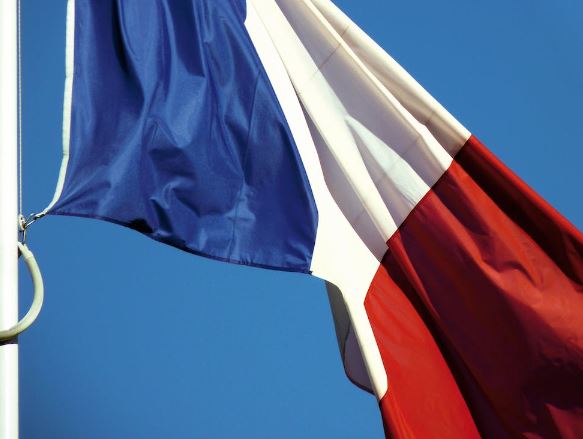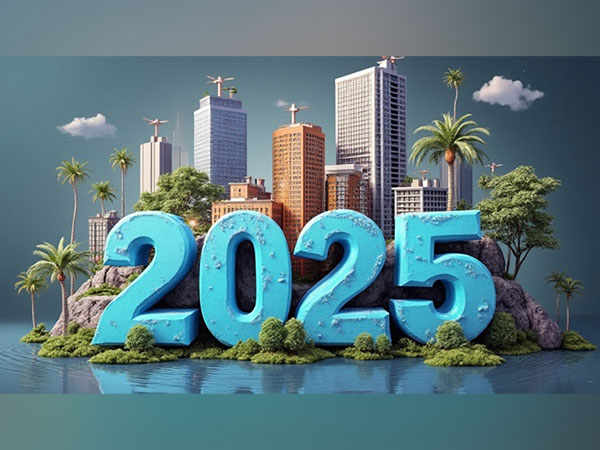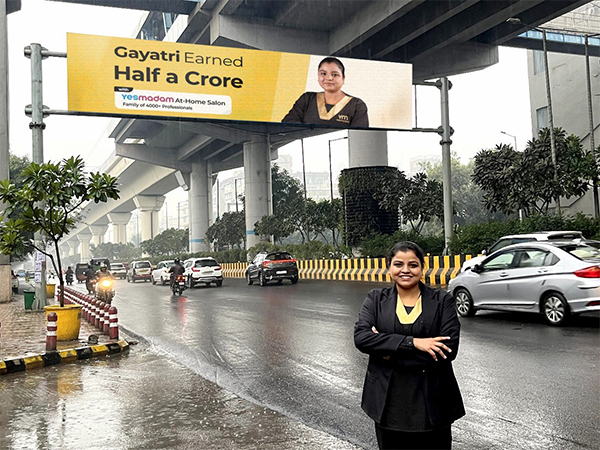
Paris climate summit opens with call for 'finance shock'
Jun 23, 2023
Paris [France], June 23: The leaders of France and Barbados joined forces on Thursday to push for an overhaul of the international financial system at a summit aimed at charting a fresh approach to tackling poverty and climate change. French President Emmanuel Macron, who is hosting the two-day conference in Paris, invited Barbadian Prime Minister Mia Mottley to co-headline the event, which seeks to improve the lending system for developing countries. The summit comes amid growing recognition of the scale of the financial challenges ahead, with warnings that the world's ability to curb global warming at tolerable levels is reliant on a massive increase in clean energy investment in developing nations.
In his opening remarks, Macron told delegates that the world needs a "public finance shock" - a global surge of financing - to meet these challenges. "Policymakers and countries shouldn't ever have to choose between reducing poverty and protecting the planet," he said. Many economies are staggering under a growing debt burden after successive crises in recent years, including COVID-19, Russia's invasion of Ukraine, spiking inflation and the spiraling cost of weather disasters. Leaders of major oil and gas economies are in attendance, such as Saudi Arabia's Crown Prince Mohammed bin Salman.
The Kuwaiti delegation is headed by Finance Minister Manaf Al-Hajeri, as representative of HH the Amir Sheikh Nawaf Al-Ahmad Al-Jaber Al-Sabah, and includes Kuwaiti Ambassador to France Mohammad Al-Judaei. Mottley, whose Caribbean island nation is threatened by rising sea levels and tropical storms, has become a powerful advocate for reimagining the role of the World Bank and International Monetary Fund in an era of climate crisis. "What is required of us now is absolute transformation and not reform of our institutions," Mottley said.
Barbados has put forward a detailed plan for how to fix the global financial system to help developing countries invest in clean energy and boost resilience to climate impacts. "We come to Paris to identify the common humanity that we share and the absolute moral imperative to save our planet and to make it livable," said Mottley. The head of the World Bank said Thursday the lender planned to introduce a "pause" mechanism for debtor countries in the event of them being hit by a crisis. Ajay Banga told the summit that the multilateral lender would adopt a new approach that "significantly expands the World Bank's toolkit".
The most important measure would be offering "a pause on debt repayments so countries can focus on what matters when a crisis hits and stop worrying about the bill that is going come," he added. The idea has been promoted by Mottley. She has sought to highlight how heavily indebted developing countries are unable to respond to natural disasters, as well as international crises such as the COVID-19 pandemic or inflation sparked by Russia's war against Ukraine. Caribbean islands like hers are increasingly vulnerable to tropical storms which can devastate homes and property, as well as livelihoods linked to the vital tourism industry.
The World Bank, the sister organization of the International Monetary Fund, is a top public lender for countries to finance their infrastructure and other project. While France has pitched the conference as a consensus-building exercise, it has sought to show the summit can also deliver some tangible progress. One key announcement came from IMF director Kristalina Georgieva, who said a pledge to shift $100 billion of liquidity boosting "special drawing rights" into a climate and poverty fund had been met. "Ultimately it is the future of humanity that is being discussed here," she told reporters.
Separately, a group of wealthy nations and multilateral development banks have promised to mobilize €2.5 billion ($2.7 billion) to help Senegal reduce its dependence on fossil fuels, President MackySall said. The deal is the most recent in a series of so-called "just energy transition partnerships", with $8.5 billion promised to help South Africa wean itself of coal-fired power, $20 billion for Indonesia and $15.5 billion for Vietnam. Outlining the challenges facing developing countries, UN Secretary-General Antonio Guterres said more than 50 nations were now in or near debt default, while many African countries are spending more on debt repayments than on healthcare.
Guterres said the post-World War II global financial system was failing to rise to modern challenges and now "perpetuates and even worsens inequalities". Macron also said he was hopeful that a pledge to deliver $100 billion a year in climate finance to poorer nations by 2020 would finally be fulfilled this year - although actual confirmation the money has been delivered will take months if not years. This week, the International Energy Agency said annual investment just for clean energy in these countries will need to jump to nearly $2 trillion within a decade, to keep alive the Paris Agreement goal of limiting global warming to "well below" two degrees Celsius since pre-industrial times, and below 1.5C if possible.
Ideas for how to turn "billions to trillions" for these climate and development goals include using multilateral development banks to help unlock climate investments, as well as taxation on fossil fuel profits and financial transactions to raise climate funds. France backs the idea of an international tax on carbon emissions from shipping, with hopes of a breakthrough at a meeting of the International Maritime Organization in July. Countries also want disaster clauses added to new debt arrangements to allow a country to pause repayments for two years after an extreme weather event. Later Thursday, Billie Eilish performed at Global Citizen's "Power Our Planet" concert, lending star appeal to a macroeconomic niche unused to such a limelight. - AFP
Source: Kuwait Times









